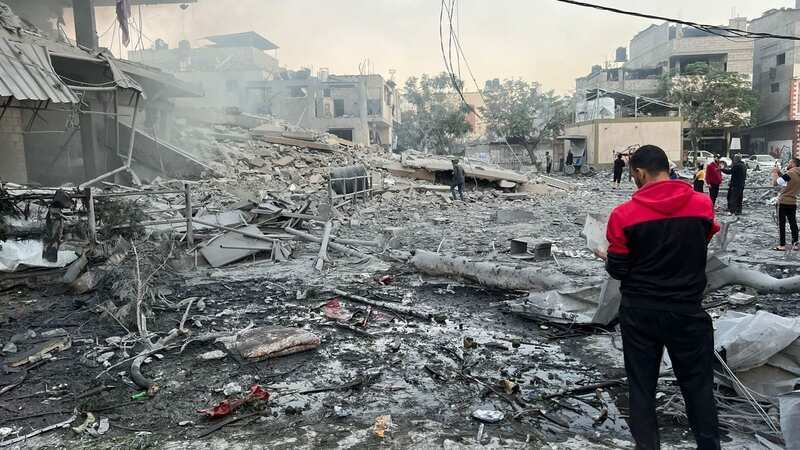'The world needs to think about 'the day after' in Israel and Palestine'

The truce has ended, the relative calm of Jerusalem has broken, and the desperately high levels of violence in the West Bank continues almost unseen by the world.
As we shed tears of relief for the innocents freed from Hamas over the past seven days, our hearts remain burdened by the plight of those who remain in peril. In Gaza the situation is not improved, with the truce having failed to make a meaningful difference to the humanitarian disaster.
Sufficient basic food, water and medicines have not reached innocents, let alone clean clothes, blankets and sanitation goods. Children are begging for water in the streets.
As the fighting resumes, the rules of war around distinction, proportionality and self-defence should be foremost in our diplomatic armoury. The determination of safe zones cannot be unilateral, nor should civilians be forcefully displaced. We must redouble our efforts to bring home the hostages still held by the terrorist group Hamas and Islamic Jihad, and ensure our Government is meeting regularly with the families of those who were kidnapped and still face untold horrors.
There is much debate about the days after the bombings finally stop, although I would note a lamentable absence of plans on how to reconstruct and rebuild a decimated Gaza. But the tragic reality is that there is a complete void in debate on how we reach the day after, the day when long term security building begins.
 Teachers, civil servants and train drivers walk out in biggest strike in decade
Teachers, civil servants and train drivers walk out in biggest strike in decade
How do we create a situation in which Israel feels safe and does not face an active threat to its people? How do we create a future in which the people of Palestine can live in safety and security, with a homeland over which they govern?
A vital step towards this would be the establishment of an Israel-Palestine Contact Group. Made up of Arab states and the US, UK, and EU, it should be led by the Arab nations themselves and we must be cautious not to look to the US predominantly for leadership, or risk finding ourselves in the same quagmire of discussion around their enduring commitment to the crisis as we do on Ukraine.
The Contact Group would focus diplomatic efforts by creating a multilateral forum to help resolve the crisis. This coming year should be dedicated to resolving the insecurity of the region for the long term, with a political process that stabilises and creates new governance structures.
Never again can we leave the situation in Israel and Palestine to fester. Never again can the international community afford to face warnings such as those I gave in January this year that we would see the “Gaza crisis of 2023”.
Additionally, as part of the contact group, an Independent Investigative Mechanism should be established to ascertain ground truths, help uphold international humanitarian law, and separately establish a working group to ensure meaningful humanitarian access.
Bombs do not and cannot obliterate an ideology. Nor can a stable state be constructed from oblivion. These questions should be shaping Britain’s decisions and actions, and force planning for how we get to the day after, not just what we would do if we reach that horizon.
Read more similar news:
Comments:
comments powered by Disqus

































